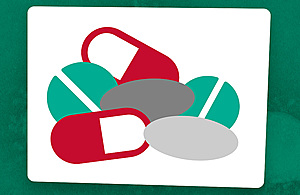Commission on Human Medicines advice on ibuprofen and coronavirus (COVID-19)
Expert Working Group concludes there is currently insufficient evidence to establish a link between use of ibuprofen and susceptibility to contracting COVID-19 or the worsening of its symptoms.

The Commission of Human Medicines (CHM)Expert Working Group on coronavirus (COVID-19) has concluded that there is currently insufficient evidence to establish a link between use of ibuprofen, or other non-steroidal anti-inflammatory drugs (NSAIDs), and susceptibility to contracting COVID-19 or the worsening of its symptoms.
Patients can take paracetamol or ibuprofen when self-medicating for symptoms of COVID-19, such as fever and headache, and should follow NHS advice if they have any questions or if symptoms get worse.
Taking ibuprofen
Patients should always read the patient information when taking over-the-counter medicines, such as ibuprofen and paracetamol, and follow the instructions on how to take the medicines.
Prescribing ibuprofen
Healthcare professionals should consider a patient’s individual risk factors, including any history of cardiovascular and gastrointestinal illness, when prescribing ibuprofen. Additionally, ibuprofen should be used with caution in patients with known renal impairment.
The lowest effective dose of ibuprofen should be used for the shortest duration necessary to control symptoms.
Patients who have been prescribed NSAIDs as a treatment for a long-term condition, such as arthritis, should keep taking these medicines as normal. Adult patients who take low-dose 75 mg aspirin regularly for prevention of heart attacks or for vascular disease should continue to do so.
Healthcare professionals, patients and carers should report any suspected side effects from a medicine including those purchased over-the-counter to the Yellow Card Scheme.